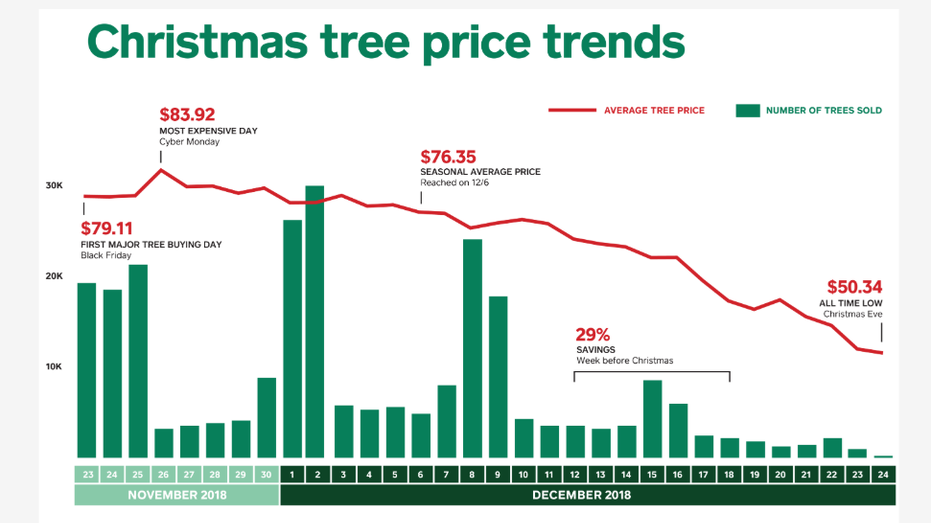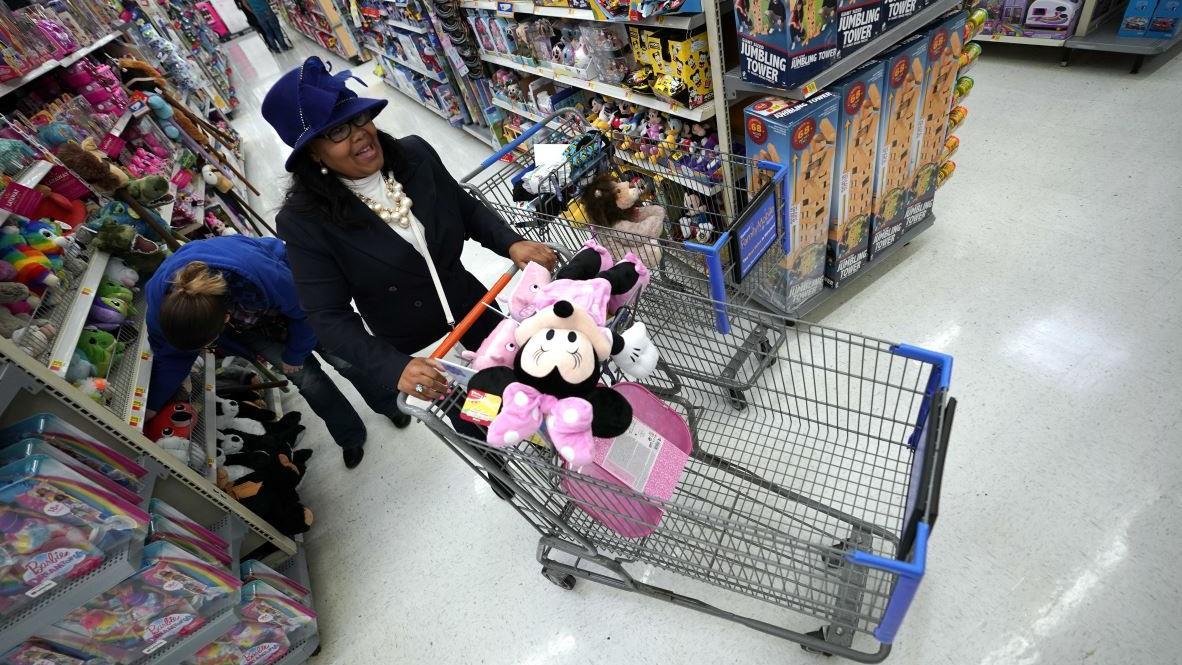Potential Christmas tree shortage could hit your wallet this holiday season
Brenda Lee's 1958 hit "Rockin Around the Christmas Tree" calls for "some caroling" and "everyone dancin' merrily," but you need a Christmas tree. But now there may not be enough to go around, and it could hit your wallet.
WHITE HOUSE CHRISTMAS TREE TO BE DELIVERED ON MONDAY
States across the U.S., including Oregon, Missouri and North Carolina, are experiencing a lower supply of Christmas trees this year because of a shortage of seedlings over the past eight to 10 years and the hot and dry weather of the past two summers, which is likely to result in higher prices for consumers, according to KGW 8. Heavy rains in Missouri damaged some trees in the state, while a combination of rain and last year's severe winter hurt tree availability in Wisconsin.
However, Tim O’Connor, who heads the National Christmas Tree Association (NCTA), told the Milwaukee Journal Sentinel that the shortage is "taken out of context.”
GET FOX BUSINESS ON THE GO BY CLICKING HERE
O'Connor says supply has been tight for the last three years. And that may also be because demand has increased. Five million more real Christmas trees — a total of 32.8 million — were purchased in 2018 compared to 2017, according to the NCTA. By comparison, 23.6 million new "fake" trees were purchased in 2018; the average cost for a new fake tree was $104. The average price for a real tree was $78.
HOW TO CAPITALIZE ON 'UGLY CHRISTMAS SWEATER' PHENOMENON
Twenty-eight percent of people cut down their own trees, which is equivalent to the number of those who shop for a real tree at retailers like Walmart, Home Depot and Lowe's. Meanwhile, only 2 percent of consumers bought a tree online.

The NCTA released a tool that may help buyers decide when to purchase a tree and avoid any potential supply and demand issues. The organization has partnered with the electronic payment company Square to suggest the ideal date to purchase a real Christmas tree based on region, desired budget and how long you hope to keep it.
But whether you use the calculator or not, O'Connor promises “the reality is we’ve never run out of Christmas trees.”




















